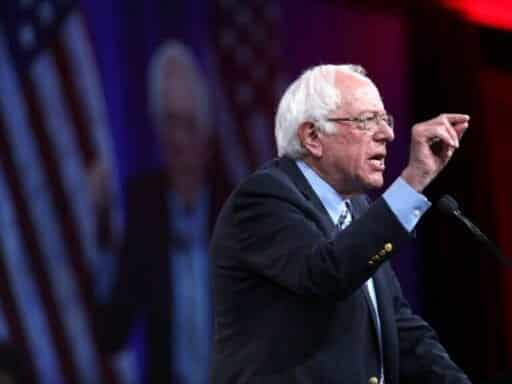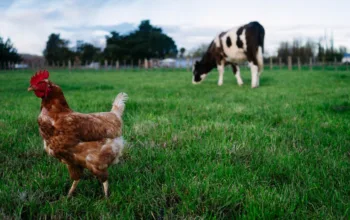Winner: Jay Inslee.
CNN’s Climate Crisis Town Hall on Wednesday night was an unprecedented seven hours of discussion on climate change with 10 of the Democratic 2020 presidential contenders. It was also the most substantive discussion of climate change policies ever broadcast on primetime television.
Each candidate was given a 40-minute segment, meaning they could provide long, nuanced answers to hard questions on the most far-reaching issue of our time. There was a lot that could have gone wrong, so it’s remarkable so much went right. The town hall easily outshone the muddled discussion in the paltry half-hour or so devoted to climate change across eight hours of official Democratic debates.
“Climate is not a separate issue,” said Sen. Cory Booker. “It is the lens through which we must do everything.”
Before the town hall, the 2020 candidates put out their own comprehensive visions to combat greenhouse gases and adapt to a warming world, but in front of the cameras, they were tested on their mastery of their own material. The questions came from CNN moderators and audience members, and they ranged from carbon taxes to meat consumption to fracking bans.
For many observers and climate activists on social media, it was a surprisingly productive discussion that dealt with a core challenge the president must address in office: the exercise of executive power.
Everyone who said “what would we possible debate at a #climatedebate?”: I hope you’re watching at least a few mins of this marathon #ClimateTownHall. The questions, especially from audience, are ~ALL substantial & important. Far better than almost all asked at debates so far.
— JesseJenkins (@JesseJenkins) September 5, 2019
Between segments, CNN provided updates on Hurricane Dorian, the strongest storm of the year. It served as a vivid backdrop for how the effects of warming like rising sea levels and intense rainfall are worsening the harm from extreme weather.
Throughout the night, candidates were forced past simply reciting vague platitudes, dunking on President Trump, and sniping at their opponents. Instead, facing an audience with real stakes in the fight against climate change, they had to defend their ideas on their merits.
Some did so better than others. And across seven hours of questioning, we learned about who stands most ready to lead the charge against climate change but also who is driving the discussion.
Here are those that reached high ground and those that were underwater at the end of the long evening.
Winner: Jay Inslee
Washington Gov. Jay Inslee built his presidential campaign around the urgency of combating climate change. Although Inslee wasn’t on stage Wednesday night — he dropped out of the race in August after putting out more than 200 pages of climate change policy, all of it ambitious and detailed — his influence was everywhere.
Inslee sat down with Sen. Elizabeth Warren (D-MA) in Seattle last week as she was crafting her climate plan. He chatted with former Texas congressman Beto O’Rourke, former Vice President Joe Biden, Sen. Bernie Sanders, Sen. Cory Booker, and Sen. Amy Klobuchar. Former housing secretary Julian Castro has been “looking for me,” Inslee told Vox Wednesday, but they haven’t been able to connect yet.
On Wednesday night, several candidates deemed Inslee’s platform the gold standard of climate plans. “I also want to give a shoutout to governor Jay Inslee who did a fantastic job of bringing this issue to the forefront of this campaign,” Castro said.
Klobuchar said she supported the “individual efforts like [the ones] Governor Inslee talks about so well — things like even using cold water for the clothes saves five times the energy.”
“I’m going to steal a line from Governor Inslee,” Sen. Kamala Harris (D-CA) said. “Donald Trump said wind turbines cause cancer. And Jay said, no, they don’t cause cancer; they cause jobs.”
Warren explained her recently unveiled a proposal that adopted one plank of Inslee’s six-plan platform, calling to decarbonize electricity, vehicles, and buildings through higher regulatory standards. Warren’s campaign told Vox they are continuing to look at the rest of Inslee’s climate agenda.
Ahead of the climate town hall, Inslee told Vox he would be watching for how candidates talked about the timelines of their plans and how they would get them passed through slim majorities in Congress (he himself supports getting rid of the filibuster). Few candidates — except Sanders, whose Green New Deal proposes $16 trillion in federal investments — have put forward proposals as comprehensive and as big as Inslee’s. But Inslee is still encouraged that people are listening to him.
“I’m honored people have recognized our plan has real substance,” Inslee told Vox. — Tara Golshan
Winner: The Sunrise Movement
The tenacious activists of the Sunrise Movement, the youth-led political movement that helped develop the Green New Deal, campaigned for a presidential debate on climate change.
While the DNC voted down holding an official climate debate, Sunrise activists secured support for the idea from a majority of the Democratic presidential candidates, building the case for CNN (and MSNBC, which is hosting a town hall next week) to take a chance on holding a climate change forum.
“You and other members of the Sunrise Movement are going to be the ones who are going to receive the credit for this change that we’re talking about today,” former Texas Rep. Beto O’Rourke told Juliana Rossi de Camargo, an organizer at Sunrise, during the CNN town hall.
omg it’s just hitting me that @sunrisemvmt did this. the coalition they built made this happen. i’m gonna cry. i’m so so so proud of you and all your sweet smart climate babies @VarshPrakash @evanlweber @DJaye @erin_bridges_94
— Rhiana Gunn-Wright (@rgunns) September 5, 2019
Sunrise is also helping set the goalposts for the candidates’ climate policy ambition. Every candidate’s agenda was tacitly or overtly measured against Sunrise’s foundational climate proposal, the Green New Deal, a framework of principles for eliminating the United States’ contribution to climate change by the middle of the century.
“I love the vision of the Green New Deal,” said entrepreneur Andrew Yang. “The framers of it have done us all a great service by energizing so many people around a vision.”
And the Sunrise activists themselves, a cadre of vocal young and diverse campaigners, are continuing to push the candidates to strive for more ambitious emissions reduction targets, demanding details and commitment from everyone seeking office. —Umair Irfan
Winner: Bernie Sanders
Sanders was somewhat late to the game in this climate primary; he didn’t release his comprehensive climate plan until August. But when he came out, he came out with a bang, outlining the only plan so far that rivals Inslee’s in scope and ambition. And it contained a few provisions that no other campaign has touched, most notably a plan to semi-nationalize the nation’s electric utilities. The price tag: $16 trillion over 10 years.
At the forum, Sanders benefited from following Biden, who was as rambling and unfocused as he has been this whole campaign season. By contrast, Sanders was sharp and on-message, with easy command over the details of his plan. And the more intimate setting allowed Sanders moments of quiet reflection and — especially in response to a question about fossil fuel workers — real emotion.
“I’ve spent my entire life fighting for workers,” he said. “Let me be clear: The coal miners in this country, the men and women who work on the oil rigs, they are not my enemy. My enemy is climate change.”
Substantively, his worst answer was his first. He was asked about the filibuster and offered a limp defense, claiming he doesn’t want “the Senate to become the House.” He claimed that, instead, he could pass his climate plan through a majority process in the Senate called budget reconciliation. (That’s not true — only a limited slice of any climate plan could pass reconciliation rules.)
Not many voters will care about the filibuster, though, and from there Sanders went on to press his case against fossil fuel companies (he would direct his Justice Department to hold them criminally liable), vow to protect workers and small businesses, and, almost alone among candidates, face up squarely to the idea that there might be some effort and sacrifice involved in solving the climate crisis. “There’s going to be change,” he said. “We’re going to have to ask people to understand that we have got to make those changes now, even though they may be a little bit uncomfortable, for the sake of future generations.”
One notable dynamic: With Jay Inslee out of the race, Sanders’ plan has become the de facto marker of ambition. Several candidates were asked to compare their plans to his; he loomed over the debate even when he wasn’t on stage. — David Roberts
Winner: The audience questioners
A mother who lost her daughter to Superstorm Sandy. A nurse concerned about climate impacts on her low-income patients. A refugee from rising sea levels. A union worker anxious about losing his job.
The most compelling questions of the night came from ordinary people who have faced the consequences of climate change or might suffer from the efforts to combat it. Their personal narratives added tangible stakes to the often-abstract discussions about climate policy. And looking straight at the candidates, they leveled tough, specific questions that were difficult to dodge.
“My husband and I own our one and only 2,000-square-foot house, which is in the 500-year floodplain,” said retired middle school teacher Emily Wilkins to former Housing and Urban Development Secretary Julián Castro. “We are required to carry FEMA flood insurance, but it rises in cost 18 percent every year. We may lose our house at some point when we can no longer afford the insurance. What proposals of yours would help us stay in our home?”
Disability and LGBTQ rights activist Carson Tueller pressed Sen. Kamala Harris on how she would address the impacts of climate change on marginalized people, drawing on his personal struggles during this summer’s heat wave. “I have a spinal cord injury and part of having a spinal cord injury means I experience something called thermodysregulation. I can’t regulate my body temperature. I can’t sweat. July of 2019 was our Earth’s hottest month on record,” he said. “And I had my health put at risk seriously more than once.”
The questioners elicited good answers and pushed some candidates into awkward positions, as good questions should. And for viewers at home, they helped illustrate how efforts to mitigate climate change might affect them and who in the race for president would be their best advocate in the transition toward clean energy. — Umair Irfan
This is why, though the ratings won’t match a debate, the town halls are better for climate activists. Instead of “show of hands: Ban hamburgers?” you get openings for longer answers https://t.co/V3qB7lPJB0
— Dave Weigel (@daveweigel) September 5, 2019
Winner: CNN
Let’s face it, the first two CNN moderators, Wolf Blitzer and Erin Burnett, were … not good. Blitzer’s idea of a tough question was to push Andrew Yang on whether “all Americans are going to have to drive electric cars.”
“Electric cars, it’s not something you have to do,” Yang said, laughing. “It’s awesome!”
Blitzer: “So what’s the answer? Are we all going to have to drive electric cars?”
Yang: “We are all going to love driving our electric cars.”
Blitzer: “Will we have to drive electric cars?”
Oy.
This is the typical cable moderator’s idea of a tough question: asking Democrats to respond to a Republican talking point. There was a stark contrast between the moderators’ goofy gotcha questions and the articulate, informed question from the audience.
However, Anderson Cooper turned it around when he took over, offering helpful context and clarification for both questioners and candidates. (“Thanks for your help,” Biden cracked at one point.) And special “climate correspondent” Bill Weir was around all night, asking smart questions, keeping the focus on ongoing human suffering.
Taking a step back, it’s remarkable this thing happened at all, and it could easily have been filled with shallow questions and cliched answers. Instead, CNN managed to host seven hours of sustained, substantive, primetime discussion on climate change — something that would have been unthinkable even six months ago — with very little fat on it.
For as often as the network is criticized for its climate coverage, it deserves enormous credit for this. — David Roberts
Winner: The Democratic Party
It is difficult to imagine any set of Republican lawmakers engaging in sustained, positive policy discussion for seven hours, but the Democratic candidates pulled it off with aplomb. They did not attack one another; they spent very little time attacking Republicans; even Trump himself only got a few callouts. Almost the entire event was devoted to forward-looking social and policy discussion. It was downright inspiring.
There are plenty of differences among the candidates, on climate change and other issues. And not every candidate hit it out of the park at the town hall. (Harris and Biden, in particular, seemed ill at ease and did more filibustering than the others.) But not a single candidate came unprepared; not a single candidate was anything less than informed and engaged. A few of them — Yang and Booker in particular — turned in some of the strongest performances of their races so far.
The primary season may well be miserable and Trump may well win in 2020, but Democrats — especially Democrats concerned about climate change — should take some solace in the fact that they boast a deep and impressive bench, aligned on the right side of history. — David Roberts
Loser: Joe Biden
Joe Biden’s big moment at the CNN town hall was not one he was hoping for: He was called out for planning to attend a Thursday campaign fundraiser co-hosted by Andrew Goldman, who helped found natural gas company Western LNG.
Although Goldman isn’t technically a fossil fuel executive and isn’t part of day-to-day operations at the company, Biden said he’d consider pulling out of the fundraiser if there was more of a link between the two. But even a whiff of coziness between Biden and someone with ties to a fossil fuel company won’t make climate activists happy. (Immediately after the debate, Sunrise called on Biden to cancel the fundraiser.)
Compared to Warren and Sanders, the former vice president and current Democratic frontrunner didn’t offer a clear vision on climate. Biden gave long and often rambling answers about his climate plan, noting climate groups gave it a “B+ or beyond.” He declined to join some of his opponents in supporting a nationwide ban on fracking. And he kept returning to the point that his experience talking to world leaders as Obama’s vice president would help him build an international climate coalition. In doing so, Biden seemed to suggest that whatever the US did to decarbonize ultimately wouldn’t matter if the rest of the world didn’t follow the lead.
“The fact of the matter is that we make up 15 percent of the problem. The rest of the world makes up 80, 85 percent of the problem,” Biden said. If we did everything perfectly — and we must and should in order to get other countries to move — we still have to get the rest of the world to come along and the fact of the matter is we have to up the ante considerably.” —Ella Nilsen
Loser: Oil and gas companies
The CNN climate town hall once again showed just how much the Overton window has moved for Democrats on climate change. President Obama openly boasted about increasing US fossil fuel production, fossil fuel exports, and low gasoline prices. Climate change barely came up at all in the 2016 presidential race.
Now Democrats are describing all kinds of ways they will hold the fossil fuel industry accountable for its pollution and emissions, and they are charting the course for weaning American off its products.
All 10 candidates want to restrict drilling on public lands. Sen. Bernie Sanders wants criminal prosecution of climate polluters. Harris wants to sue them. “They are causing harm and death in communities,” she said. “And there has been no accountability.” Booker and Sanders so far have said they would ban fracking.
Castro described the inevitable end of natural gas: “Almost a decade ago, we had been saying that natural gas was a bridge fuel. We’re coming to the end of the bridge. My plan calls for moving toward clean, renewable zero-emission energy in the years to come”
Subsidies to oil and gas companies, which all the candidates oppose, also came up; Sanders wants to end them entirely by 2050. “What goes on right now is we are giving the fossil fuel industry approximately $400 billion every single year in subsidies and tax breaks,” Sanders said.
Yang and Warren highlighted just how the industry has distracted and manipulated the public on climate change; Yang described how he intends to reduce the industry’s influence in politics. “You know how they’ve been spending some of their money, their billions of dollars in profit?” he said. “On a misinformation campaign to the American people, and they’ve taken our legislature hostage. They have the fossil fuel lobbying industry that’s in the tens of millions a year.”
The candidates differ in their timelines for transitioning off fossil fuels, but the forum made it clear just how unified they are in their commitment to policy that will radically restrict and curtail this industry come 2020. — Eliza Barclay
Loser: Meat
Several candidates had to contend with variations from the audience on one of the trickiest climate questions: How will you encourage Americans to reduce meat consumption, given the disproportionate greenhouse gas emissions of beef production compared to other foods?
What emerged was a range of ideas including using nutrition labels to educate Americans on the environmental impacts of meat production, using a carbon tax to signal the emissions impacts of meat, and restricting subsidies to the meat industry — all of which could potentially hurt the meat industry and benefit the climate.
Moderator Erin Burnett asked Harris if she supports changing the dietary guidelines to reduce red meat. “We will encourage moderation,” Harris said “I’ve always believed that we should expand what is on those cans of those things you buy in the grocery store. We should expand the list. Included in that should be a measure of the impact on the environment.“
Several candidates also used the diet question as an opportunity to point out that Republicans have made the hypothetical threat of Democrats taking away Americans’ hamburgers an argument against the Green New Deal. “The important thing to understand is that we can have a more balanced diet and therefore a more balanced footprint and not abolish the cow,” Mayor Pete Buttigieg said. “[Abolishing the cow] is what people are saying about the Green New Deal. Because it’s an easy Republican talking point.”
Buttigieg noted that his carbon tax applied to meat would help curb meat consumption by demonstrating to consumers the climate costs of meat production. “We change the economic signal and bring it into balance, and balance is what we have lost when it comes to our relationship with creation, with the Earth, that sustains our ability to live.”
Booker, a vegan, suggested that his administration would also rein in subsidies to the meat and dairy industry. “We are going to have to make sure our government is not subsidizing the things that make us sick and unhealthy and hurt our environment and start to incentivize the practices that get farming and get agriculture and get the health of our communities back.” — Eliza Barclay
Author: Umair Irfan
Read More



